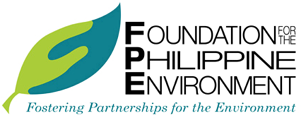News
FPE Leads Biodiversity Conservation and Sustainable Development Efforts Towards Paris Climate Pact
Posted on June 20, 2016As human CO2 emissions surge and global temperatures rise, countries are faced with the immense challenge to mitigate the “urgent and potentially irreversible threat to human societies and the planet.” This June, also declared Philippine Environment Month, marks six months post-COP21, the 2015 United Nations (UN) summit on climate change held last December 12, 2015 in Paris, France. All 195 member countries—including the Philippines—of the UN Framework Convention on Climate Change (UNFCCC) signed the COP21 agreement at the week-long summit.
Conservation efforts in biodiversity-rich Philippines—home to 70-80% of the planet’s biodiversity, and also the ninth country most vulnerable to the devastating effects of climate change1—-are most critical. Thus, the Foundation for the Philippine Environment’s (FPE) ongoing commitment to support and monitor biodiversity conservation and sustainable development (BCSD) projects in key biodiversity areas in one of the most at risk countries in the world is all the more relevant.
“COP21 [it] is a health insurance policy for the planet,” said United Nations Secretary-General Ban Ki-moon in a news briefing post-COP21. “It is the most significant action in years to uphold our Charter mandate to ‘save succeeding generations.’ For the first time, every country in the world has pledged to curb emissions, strengthen resilience and act internationally and domestically to address climate change.”
COP21’s mobilized 195 countries to commit to: 1) Keep global temperature rise below 2 degrees Celsius by 2100; 2) Push developed nations—those with the largest GHG contributions—to take the lead in the drastic reduction of their GHG emissions, and developing countries to strive to cut their emissions as well; 3) Provide financial assistance to developing countries by developed countries: an initial $100 Billion by 2020, and more by 2025; 4) Adopt a mechanism for the review and monitoring of the collective impact of countries’ contributions at five-year intervals beginning 2023; 5) Achieve a “balance between carbon emissions from human activity and carbon-absorbing sinks” such as rainforests, by 2050; and 6) Prioritize countries most vulnerable to the losses due to climate change.

As COP21 moves forward in 2020, FPE intends to respond to the growing challenges set forth by COP21 and strengthen linkages among government, non-government and peoples’ organizations, build BCSD capacities of partners, and support site-specific interventions of communities in key biodiversity areas in the Philippines. Through this, FPE strengthens its BCSD, promotes safeguarding of its natural resources, and builds climate-resilient communities, and ultimately, continue to take the lead in BCSD—concrete steps towards fulfilling COP21.
1 Climate Vulnerability Index 2014. https://maplecroft.com/portfolio/new-analysis/2013/10/30/31-global-economic-output-forecast-face-high-or-extreme-climate-change-risks-2025-maplecroft-risk-atlas/
Read More:
- Executive Director Dr. Jerome L. Montemayor carried the banner of the Foundation for the Philippine Environment and the larger civil society during the SBSTTA 26 and SBI 4 meetings in Kenya
- Call for Proposals for the SGP-8 Country Programme Strategy
- #Y4B Ambassadors: JOEPET JEROME S. JARO
- #Y4B Ambassadors: MELLARD MANOGURA
- #Y4B Ambassadors: MARY JANE P. MAGAN
- #Y4B Ambassadors: SHRI TAHANIE B. MACAUMBAO

 DISPLAY CALENDAR
DISPLAY CALENDAR
 Read Policy Briefs
Read Policy Briefs
 View Our Partners
View Our Partners
 Access Grants MIS
Access Grants MIS
 Login to Webmail
Login to Webmail